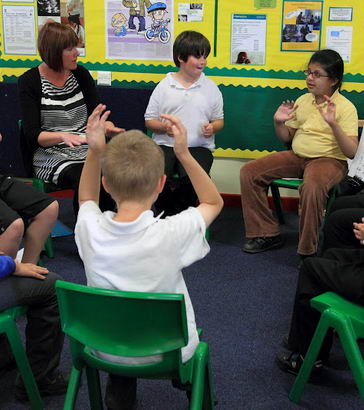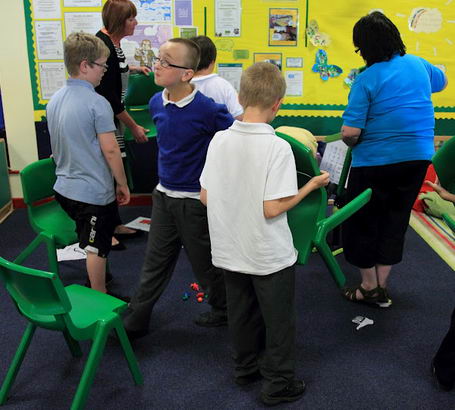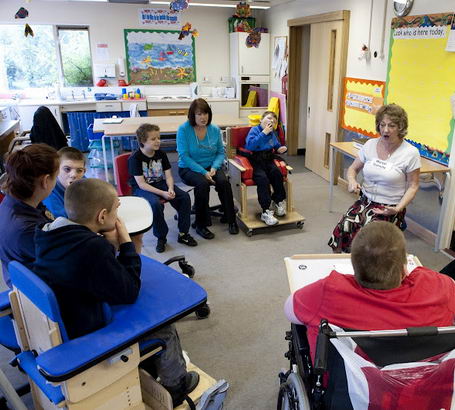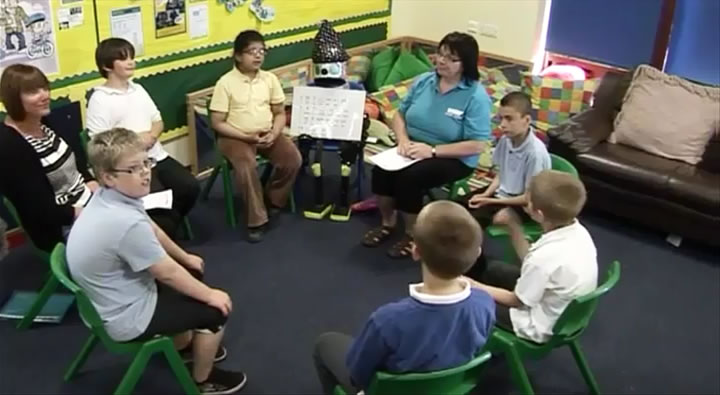
Pupils with complex needs may not have the social communication and interaction skills that are needed to move on to access SEAL and other emotional literacy skills programmes and interventions.
However, progrqammes and techniques are avavilable to encourage the development and use of non-verbal skills, verbal skills, social understanding and conversation skills.
This video shows Siobhan and Kathy supporting a group of several children to show that they are listening to others. The
intended outcomes were for the pupils to reduce fidgeting and to sit appropriately (body in correct position) in a structured
situation with verbal and
visual prompts.
A commentary on the video appears on the following slide.
The video starts part way through some starter activities which are effectively warm-ups. Then they move into the core activity in which Kathy models sitting correctly and Siobhan pretends to be a pupil in the teacher's class showing poor sitting behaviours. The pupils are encouraged to rate how well Siobhan is sitting.
CALL is a resource which has been developed by speech and language therapists and staff working in schools in North Lincolnshire. They were concerned to develop a resource for teachers in all schools, not just special schools, which would enable them to focus on the development of appropriate social communication skills. The rationale was that the research evidence tells us that there are clear links between problems in communication, social skills and behaviour, so teachers need to support and encourage the development and use of skills in each of these areas.

Consider the programmes and resources you currently use in order to foster the development of these skills. What is most useful and why, and to what extent are they effective in terms of fostering progress?
How are skills measured before and after these interventions and how can we be sure of consistency in terms of these assessments and delivery of the programme itself?
Many therapists and many schools use Wendy Rinaldi's Social Use of Language Programme (SULP). See her website at http://www.wendyrinaldi.com
SULP provides a series of activities within which to enhance children's personal, emotional and social development with an emphasis on key aspects of communication and thinking. The planned activity sequences incorporate stories, modelling by adults, games, etc.

SULP has been shown to be effective with children and young people with moderate learning difficulties and additional needs such as autism, sensory impairments and emotional difficulties.
It has been used effectively with both mainstream and special school pupils. There are teaching sets available for the primary and secondary phases of education as well as brief assessment guides for developing baselines and monitoring progress.
